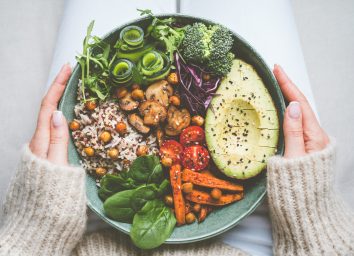6 Best Foods To Reduce Inflammation as You Age, Say Dietitians
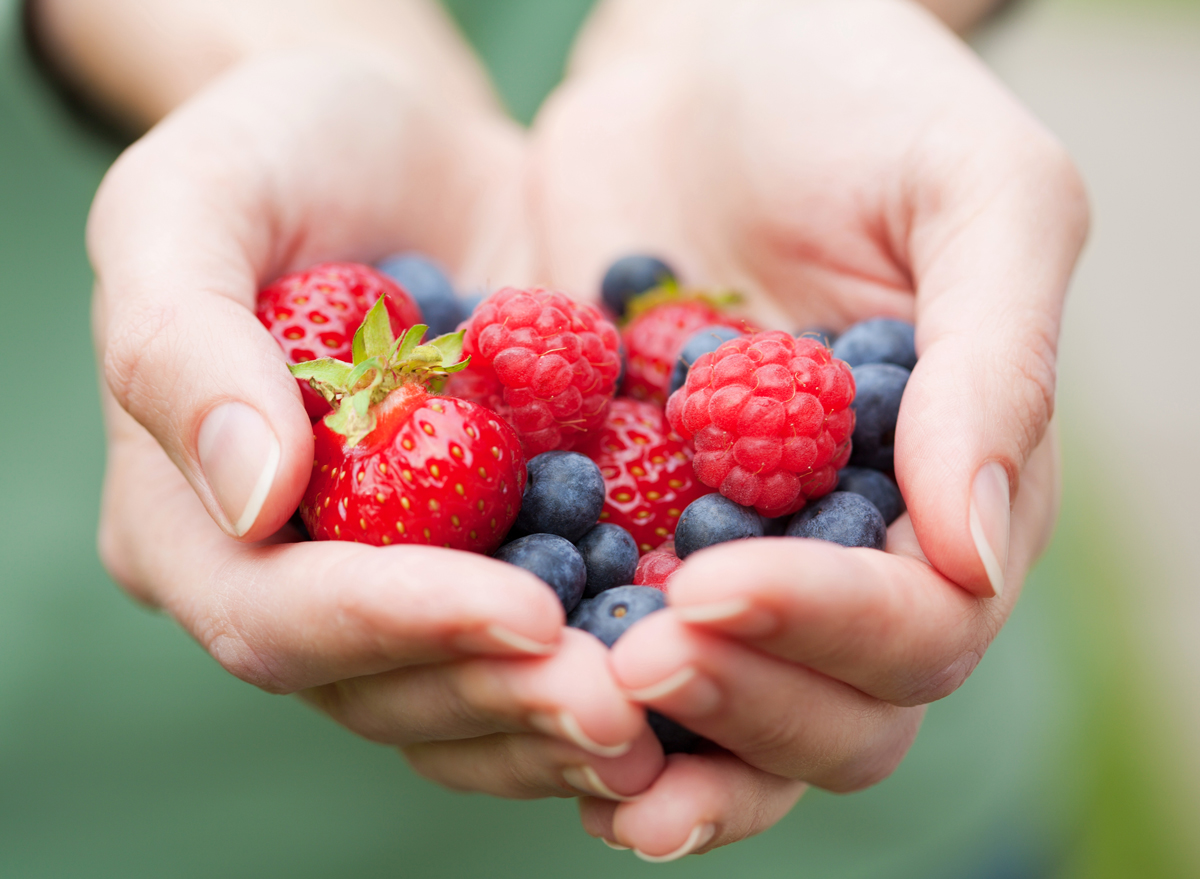
Eating a healthy diet isn’t just about trying to look good. Sure, a well-rounded diet can help with weight management, skin health, and even hair health, but it’s also vital to keep your body thriving for a long time to come. Eating inflammatory foods can negatively impact aging, which is why it’s important to focus on the best foods to help reduce inflammation as you age.
Chronic inflammation in the body has been linked to a myriad of diseases: cardiovascular disease, diabetes, dementia, autoimmune disease, and even cancer. Reducing inflammation in the body is one of the best ways to decrease the risk of disease later in life, which is why you should consider incorporating the following six foods into your diet. Here’s what to eat, then for even more tips regarding inflammation, check out The #1 Best Supplement to Reduce Inflammation, Say Dietitians.
Cauliflower
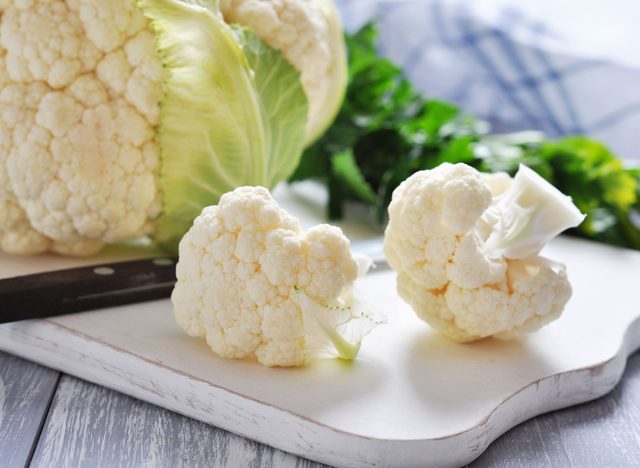
“Cauliflower contains ‘anthoxanthins,’ a type of plant pigment giving cauliflower its creamy white color,” says Mackenzie Burgess, RDN, registered dietitian nutritionist and recipe developer at Cheerful Choices. “These anthoxanthins also provide anti-inflammatory effects, making it a good choice to enjoy, especially as you age.”
If you’re not the biggest fan of cauliflower, Burgess recommends finding clever ways to sneak it into your meals. Cooking up pasta or Cali’flour Foods flatbreads and pizza crusts could be a start, as well as one of these 13 Delicious & Healthy Cauliflower Recipes.
Berries
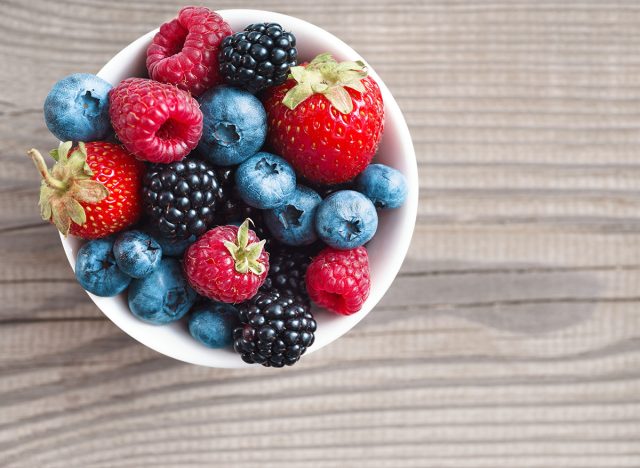
“Berries are a great source of vitamins, minerals, and antioxidants that help reduce inflammation throughout the lifespan and certainly as you age,” says Maggie Michalczyk, RDN, founder of Once Upon a Pumpkin and author of The Great Big Pumpkin Cookbook. “The antioxidants in berries are called anthocyanins which have anti-inflammatory benefits ranging from helping the immune system to lowering inflammatory markers associated with some diseases.”
Blueberries
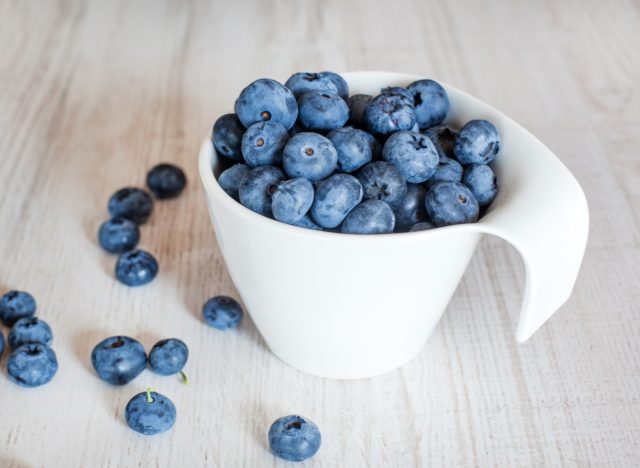
While berries can help with inflammation in general, blueberries, in particular, are popularly known for their anti-inflammatory effects—especially when it comes to aging.
“These bite-sized berries are a good source of vitamin C and abundant in a type of plant pigment called ‘anthocyanins,’ which both have antioxidant effects and may help reduce inflammation in the body,” says Burgess. “Blueberries may also play a role in supporting healthy aging. Try adding blueberries into your meals and snacks by pairing them with morning parfaits, afternoon trail mix, or weeknight salads.”
Medjool Dates
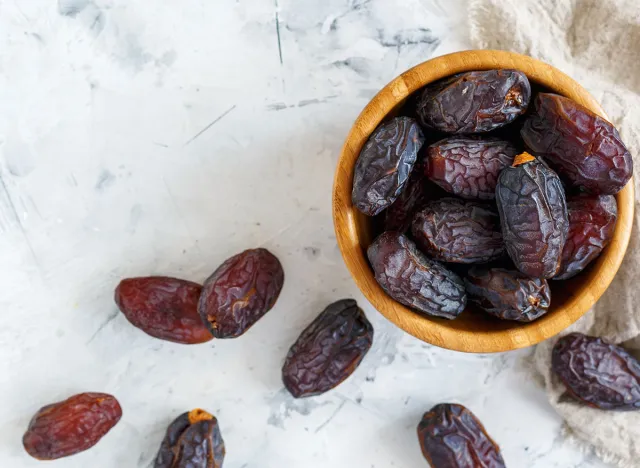
“Dates may be small, but they’re packed with all kinds of nutrients including potassium, fiber, and a type of plant compound called ‘polyphenols,'” says Burgess. “Research shows polyphenols may reduce oxidative stress and inflammation, which can help protect the body from chronic diseases like heart disease, diabetes, and cancer.”
Burgess enjoys snagging a pack of Natural Delights Medjool dates to enjoy as a snack, either by themselves or stuffed with peanut butter or light cream cheese. You could even try these Bacon-Wrapped Stuffed Dates!
Salmon
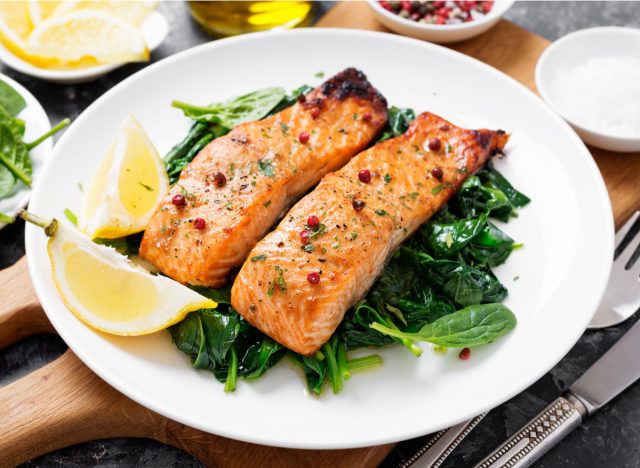
“Salmon is a good source of omega-3 fatty acids that can help fight inflammation,” says Michalczyk.
The consumption of omega-3 fatty acids not only decreases inflammatory markers for patients with diabetes and cardiovascular disease but can also help with preventing disease and optimizing metabolic health. They even help with fighting off atherosclerosis, a condition that causes plaque build-up in the artery walls, which can obstruct blood flow and increase heart disease risk.
Olive oil
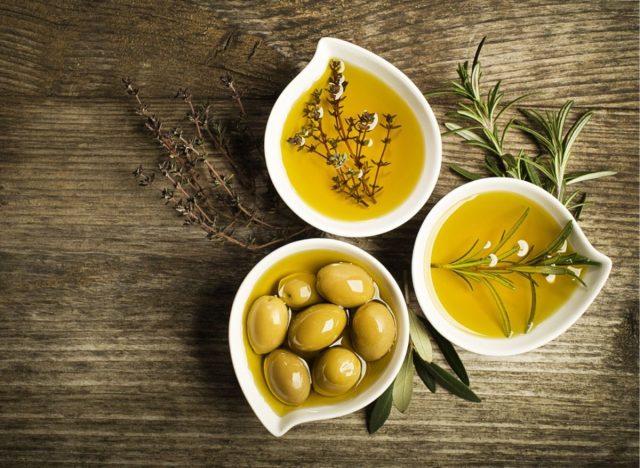
“Olive oil is rich in healthy monounsaturated fat and antioxidants that have been shown to reduce inflammation,” says Michalczyk. “It’s easy to drizzle on top of many different foods and I recommend using organic extra-virgin olive oil that is not a blend to ensure you are getting the most nutrition. Some blends are mixed with other oils that are not olive oil.”
Using these homemade dressings can be an easy way to increase your olive oil intake during the day, or even enjoy this olive oil vanilla ice cream for a sweet treat at the end of the day.


